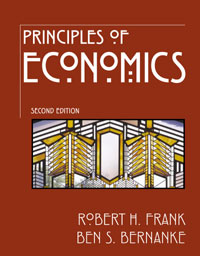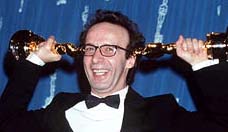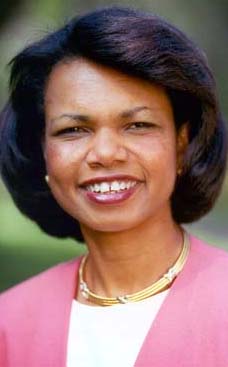February 1, 2006: Headlines: COS - Nepal: Economics: University Education: PR Newseire: Nepal RPCV Robert H. Frank co-authors 'Principles of Economics'
Peace Corps Online:
Peace Corps News:
Peace Corps Library:
Economics:
January 23, 2005: Index: PCOL Exclusive: Economics and Economic Development :
February 1, 2006: Headlines: COS - Nepal: Economics: University Education: PR Newseire: Nepal RPCV Robert H. Frank co-authors 'Principles of Economics'
Nepal RPCV Robert H. Frank co-authors 'Principles of Economics'

Robert Frank is the Henrietta Johnson Louis Professor of Economics at the Johnson Graduate School of Management at Cornell University, where he has taught since 1972. His "Economic Scene" column appears monthly in The New York Times. After receiving his B.S. from Georgia Tech in 1966, he taught math and science for two years as a Peace Corps volunteer. He received his M.A. in statistics and his Ph.D. in economics in 1972 from The University of California at Berkeley.
Nepal RPCV Robert H. Frank co-authors 'Principles of Economics'
McGraw-Hill Higher Education Releases Third Edition of 'Principles of Economics' Co-Authored by New Federal Reserve Chief
Feb 1, 2006 - PR Newswire
Introductory Program Emphasizes 'Less is More' Approach to Basic Economics
NEW YORK, Feb. 1 /PRNewswire/ -- McGraw-Hill Higher Education announces the release of Principles of Economics, 3rd Edition, an introduction to economics for college students by Ben S. Bernanke, the new chairman of the Federal Reserve, and Cornell University economics professor and New York Times columnist Robert H. Frank.
The co-authors adopt a teaching philosophy that features sharp focus on core principles -- reinforced by illustrating and applying each in numerous contexts. Throughout the book, students apply these principles to answer related questions and exercises. Rather than covering expansive material, which leads to less retention, this textbook is designed to help students absorb and master the basics in one or two semesters.
"The enthusiastic response of users of the first two editions confirms the success of this philosophy," said McGraw-Hill Higher Education publisher Gary Burke. "Principles of Economics, 3rd Edition, embracing the 'less is more' approach, is the most carefully thought-out and well-executed text available."
Avoiding excessive reliance on formal mathematical derivations, Principles of Economics, 3rd Edition presents concepts intuitively through examples drawn from familiar contexts. The text is organized to accommodate the broadest possible range of student learning styles and provides optional appendices that offer more detailed and challenging algebraic treatments for advanced students.
The text encourages students to become "economic naturalists," people who are engaged in the use of basic economic principles to understand and explain what they observe in the world around them.
This updated edition offers expanded discussion on important, current topics including the Federal Reserve's regulation of interest rates, international trade and outsourcing, the Chinese economy, and supply-side economics, among many others.
A variety of interactive tools for students and instructors supplement the textbook. These tools include computerized test banks, an online learning center for students with links to relevant news articles a Math Tutor application, study tips, and more.
About Ben S. Bernanke
Recently appointed chairman of the Federal Reserve, Ben Bernanke received his B.A. in economics from Harvard University in 1975 and his Ph.D. in economics from MIT in 1979. He taught at the Stanford Graduate School of Business from 1970 to 1985 and moved to Princeton University in 1985, where he served as chairman of the Economics Department. Named a member of the Board of Governors of the Federal Reserve in 2002, Bernanke became the chairman of the President's Council of Economic Advisers in 2005 and chairman of the Federal Reserve in 2006.
About Robert H. Frank
Robert Frank is the Henrietta Johnson Louis Professor of Economics at the Johnson Graduate School of Management at Cornell University, where he has taught since 1972. His "Economic Scene" column appears monthly in The New York Times. After receiving his B.S. from Georgia Tech in 1966, he taught math and science for two years as a Peace Corps volunteer. He received his M.A. in statistics and his Ph.D. in economics in 1972 from The University of California at Berkeley.
About McGraw-Hill Higher Education
McGraw-Hill Higher Education is a unit of McGraw-Hill Education, the premier provider of teaching and learning solutions for the pre- kindergarten through 12th grade, post-secondary, higher education and professional markets. It is a division of The McGraw-Hill Companies, a leading global information services provider meeting worldwide needs in the financial services, education and business information markets through leading brands such as Standard & Poor's, McGraw-Hill Education, BusinessWeek and J.D. Power and Associates. The Corporation, founded in 1888, has more than 290 offices in 38 countries.
Principles of Economics, 2/e
Robert Frank, Cornell University
Ben Bernanke, Princeton University, Federal Reserve Board of Governors
ISBN: 0072503300
Copyright year: 2004
In recent years, innovative texts in mathematics, science, foreign languages, and other fields have achieved dramatic pedagogical gains by abandoning the traditional encyclopedic approach in favor of attempting to teach a short list of core principles in depth. Two well-respected writers and researchers, Bob Frank and Ben Bernanke, have shown that the less-is-more approach affords similar gains in introductory economics. Although recent editions of a few other texts have paid lip service to this new approach, Frank/Bernanke is by far the best thought out and best executed principles text in this mold. Avoiding excessive reliance on formal mathematical derivations, it presents concepts intuitively through examples drawn from familiar contexts. The authors introduce a well-articulated short list of core principles and reinforcing them by illustrating and applying each in numerous contexts. Students are periodically asked to apply these principles to answer related questions, exercises, and problems.
The text also encourages students to become “Economic Naturalists,” people who employ basic economic principles to understand and explain what they observe in the world around them. An economic naturalist understands, for example, that infant safety seats are required in cars but not in airplanes because the marginal cost of space to accommodate these seats is typically zero in cars but often hundreds of dollars in airplanes. Such examples engage student interest while teaching them to see each feature of their economic landscape as the reflection of an implicit or explicit cost-benefit calculation.
The Second Edition of Frank/Bernanke follows the successful First Edition with several pedagogical improvements. Based on reviewer feedback, this edition offers (1) even more streamlined coverage of the cost-benefit approach in the introductory chapter; (2) exercises that are more closely tied to the examples; (3) expanded narrative explanations of important principles, making them more accessible to average students; and (4) expanded coverage of several key topics. The result is a revision that is motivating to students, an effective text for teaching, and an exciting first course in Economics.
When this story was posted in March 2006, this was on the front page of PCOL:





Peace Corps Online The Independent News Forum serving Returned Peace Corps Volunteers
 | March 1, 1961: Keeping Kennedy's Promise
On March 1, 1961, President John F. Kennedy issues Executive Order #10924, establishing the Peace Corps as a new agency: "Life in the Peace Corps will not be easy. There will be no salary and allowances will be at a level sufficient only to maintain health and meet basic needs. Men and women will be expected to work and live alongside the nationals of the country in which they are stationed--doing the same work, eating the same food, talking the same language. But if the life will not be easy, it will be rich and satisfying. For every young American who participates in the Peace Corps--who works in a foreign land--will know that he or she is sharing in the great common task of bringing to man that decent way of life which is the foundation of freedom and a condition of peace. " |
 | The Peace Corps Library
The Peace Corps Library is now available online with over 40,000 index entries in 500 categories. Looking for a Returned Volunteer? Check our RPCV Directory. New: Sign up to receive PCOL Magazine, our free Monthly Magazine by email. Like to keep up with Peace Corps news as it happens? Sign up to recieve a daily summary of Peace Corps stories from around the world. |
 | Paid Vacations in the Third World?
Retired diplomat Peter Rice has written a letter to the Wall Street Journal stating that Peace Corps "is really just a U.S. government program for paid vacations in the Third World." Director Vasquez has responded that "the small stipend volunteers receive during their two years of service is more than returned in the understanding fostered in communities throughout the world and here at home." What do RPCVs think? |
 | RPCV admits to abuse while in Peace Corps
Timothy Ronald Obert has pleaded guilty to sexually abusing a minor in Costa Rica while serving there as a Peace Corps volunteer. "The Peace Corps has a zero tolerance policy for misconduct that violates the law or standards of conduct established by the Peace Corps," said Peace Corps Director Gaddi H. Vasquez. Could inadequate screening have been partly to blame? Mr. Obert's resume, which he had submitted to the Peace Corps in support of his application to become a Peace Corps Volunteer, showed that he had repeatedly sought and obtained positions working with underprivileged children. Read what RPCVs have to say about this case. |
 | Why blurring the lines puts PCVs in danger
When the National Call to Service legislation was amended to include Peace Corps in December of 2002, this country had not yet invaded Iraq and was not in prolonged military engagement in the Middle East, as it is now. Read the story of how one volunteer spent three years in captivity from 1976 to 1980 as the hostage of a insurrection group in Colombia in Joanne Marie Roll's op-ed on why this legislation may put soldier/PCVs in the same kind of danger. Latest: Read the ongoing dialog on the subject. |
 | PC establishes awards for top Volunteers
Gaddi H. Vasquez has established the Kennedy Service Awards to honor the hard work and service of two current Peace Corps Volunteers, two returned Peace Corps Volunteers, and two Peace Corps staff members. The award to currently serving volunteers will be based on a demonstration of impact, sustainability, creativity, and catalytic effect. Submit your nominations by December 9. |
 | Friends of the Peace Corps 170,000 strong
170,000 is a very special number for the RPCV community - it's the number of Volunteers who have served in the Peace Corps since 1961. It's also a number that is very special to us because March is the first month since our founding in January, 2001 that our readership has exceeded 170,000. And while we know that not everyone who comes to this site is an RPCV, they are all "Friends of the Peace Corps." Thanks everybody for making PCOL your source of news for the Returned Volunteer community. |
Read the stories and leave your comments.

Some postings on Peace Corps Online are provided to the individual members of this group without permission of the copyright owner for the non-profit purposes of criticism, comment, education, scholarship, and research under the "Fair Use" provisions of U.S. Government copyright laws and they may not be distributed further without permission of the copyright owner. Peace Corps Online does not vouch for the accuracy of the content of the postings, which is the sole responsibility of the copyright holder.
Story Source: PR Newseire
This story has been posted in the following forums: : Headlines; COS - Nepal; Economics; University Education
PCOL25201
1















